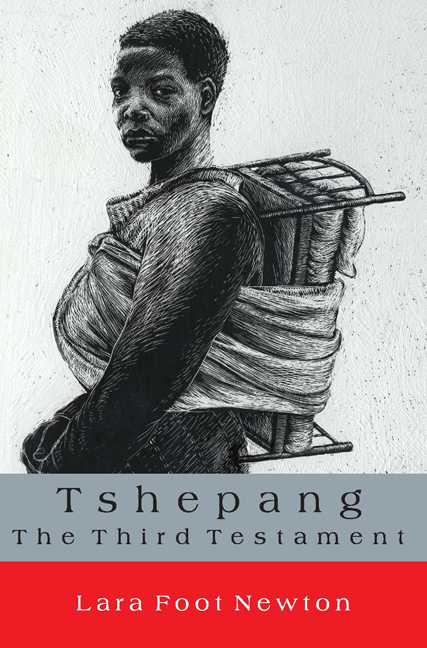Introduction
Published online by Cambridge University Press: 04 October 2019
Summary
Anything that will get people to think and feel for themselves, that will stop them delegating these functions to the politicians, is important to our survival. Theatre has a role to play in this.
The words are those of Athol Fugard, responding to the South African government's censorship policy and the proposed artistic boycott of South Africa.
While South Africa's democracy swept these censorship restrictions away, the ‘inner censors’, located in minds that avoid horror and pain, remain.
On the first pages of this published version of Tshepang are the words ‘Based on twenty thousand true stories’.
With this unadorned, stark statement, Lara Foot Newton is in agreement with Fugard. Theatre continues to play an important role in presenting the darker side of human nature.
‘Nothing ever happens here. Niks,’ says Simon of the small rural South African town in which Tshepang is located. What bitter, sad, dramatic irony.
Here, as in Thornton Wilder's Our Town or Van Triers’ Dogville or Dylan Thomas's Under Milk Wood, we learn about the physical and emotional state of the town through the actions, attitudes and events of a few characters, each representing different aspects of a microcosm. It is through the recounting of the sole narrator, Simon, that we learn the stories and histories of some of the town's inhabitants (himself included).
This fictitious, but typical, town has fallen on very hard times. Unemployment is rife and the weather stiflingly hot. There is the custom in the community for men to take ‘houvroue’, women who are both servants and concubines. Alcoholism is endemic. Sex is presented as dissolute. It is a place of sad, hard lives, without direction or a future.
Three events are central to the story.
The first is an incident from the distant past – the terrible beating of Alfred Sorrows, a three-year-old boy, by his father's houvrou, for urinating in his pants because he was laughing so much.
The second is the rape of Ruth's nine-month-old infant, Siesie, and the subsequent arrest of six men charged with the crime and later released when the identity of the real perpetrator becomes known. As a result the ‘town of shame’ gains notoriety. Media and police descend on it and, with the infamy comes a short-lived period of economic activity.
- Type
- Chapter
- Information
- TshepangThe Third Testament, pp. 1 - 17Publisher: Wits University PressPrint publication year: 2005



